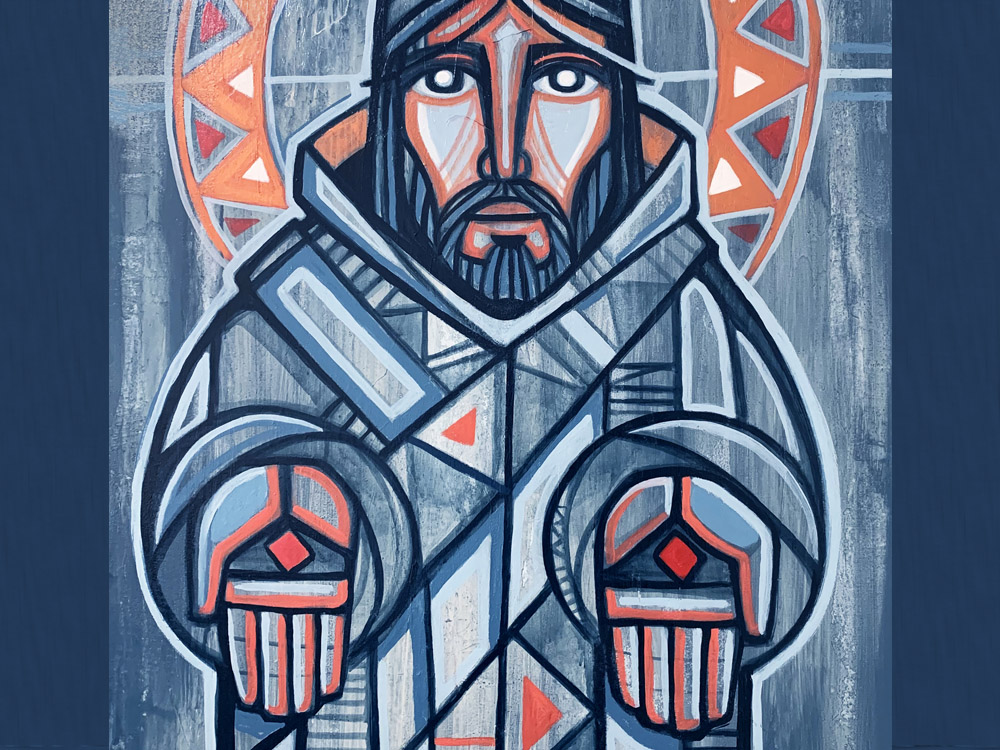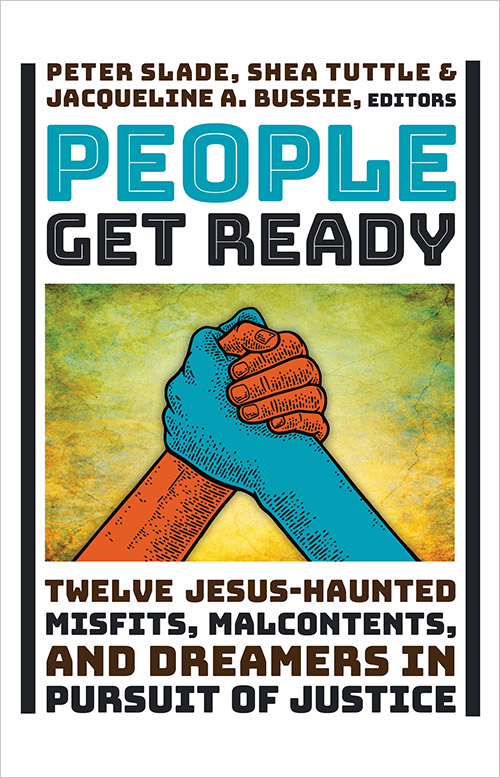
People Get Ready calls for disciples who are so imbued with a love for God and God's Word that they cannot help but run into even the most desperate situations in order to be Christ's hands and feet in the midst of it. (Dreamstime/Bernardo Ramonfaur)

To say that modern America is looking for Christians who live like Jesus is an understatement. In politics, art, music, economics and even our local libraries, there is a debate playing out about which voices are authentically Christian. Our increasingly skeptical society is in the midst of weighing the truth of the Gospel by the actions of its adherents, regardless of denomination.
While the need for witnesses of the Gospel is nothing new in Christian history, we seem to be at an inflection point that could just as easily lead to the continued decline of the church in America as it could to revival.
People Get Ready: Twelve Jesus-Haunted Misfits, Malcontents, and Dreamers in Pursuit of Justice, recognizing the need for witnesses whose actions reflect the love of Jesus in prophetic self-gift, presents 12 examples for our benefit.
The book argues that our time calls not for more preaching and teaching, but for disciples who follow "the example of Jesus into spaces marked by oppression and the tyranny of death, and there [make] manifest God's love of all that God made" and "stand unapologetically on the side of the stranger, the outcast ... against the present profanations."
Advertisement
In short, those who are so imbued with a love for God and God's Word that they cannot help but run into even the most desperate situations in order to be Christ's hands and feet in the midst of it.
The book includes 12 essays, composed by a diverse group of Christian writers, pastors and academics, on figures whose spirituality motivated them to activism and advocacy on behalf of the marginalized, overlooked and oppressed.
Though most of the essay subjects were practicing Christians, the introduction makes clear that their religious affiliation is secondary to the way their lives call the reader to "get on board" with doing the work Jesus began to bring about the kingdom of God. Hence, in addition to Baptists, Presbyterians, evangelicals and Catholics, you'll find a Universalist featured alongside a former Calvinist-turned-agnostic.
Many of the men and women featured in the book were not very successful in the eyes of the world. Some were successful for a time; some waited years to see the fruits of their labors; others, through a historical lens, would be considered all-out failures.

An unidentified civil rights demonstrator lies uninjured on the ground in Cleveland on April 7, 1964, while police prepare to place the body of the Rev. Bruce Klunder on a stretcher. Klunder, one of the demonstrators, was killed when a tractor ran over him. (AP/Julian C. Wilson)
The most memorable example comes in the story of Bruce Klunder. Klunder, a white minister in Cleveland was accidentally killed by a construction worker while protesting educational segregation in the 1960s. His death caused backlash among white citizens of the Northern city and, ultimately, made no impact on the continued marginalization of the Black community.
Klunder's story, as essay author Carolyn Renée Dupont notes, is "lacking in moral vindication [and] devoid of triumph — a narrative that peters out rather than explodes in a blaze of glorious victory." His story begs the question: Does the God of Jesus Christ want measurable outcomes, or is God asking instead for unflinching faithfulness?
The discomfort felt in reading about Klunder is not unique in this book. Each of the figures profiled in People Get Ready will challenge the assumptions we have about what it means to be a faithful, orthodox Christian.
Take, for example, the profile of Catholic author Flannery O'Connor. For many years O'Connor was lauded as one of the great modern Catholic writers, a woman whose fiction overturned Southern notions of race and envisioned a world where the kingdom of God is fully realized. Yet in the past three years, we have discovered the racism she expressed throughout personal correspondence and journals that lasted until the day of her death.
Editor Jacqueline Bussie asks us to grapple with this side of O'Connor's life alongside the fiction — and to ask ourselves what we mean when we say we believe in the power of God's grace.
People Get Ready is not a comfortable book for those who wish to stay comfortable. But for those Christians willing to enter into discomfort for the sake of living like Christ, this book is much needed.
The book also challenges Christians to examine their relationship to the law and the government, namely in M. Therese Lysaught's profile of the Mexican priest Ramón Dagoberto Quiñónes. Quiñónes, along with seven other Christians of various denominations, was a founder and leader of the sanctuary church movement, which openly defied U.S. immigration policy to shelter refugees from El Salvador during that country's civil war in the 1980s.
This movement, which included more than 500 congregations, publicly defied the United States government in protest to its deportations of Salvadorans, which the sanctuary activists saw as a violation of international law. In trying to save innocent people from death squads and human trafficking would we, too, be willing to defy governments in the name of Jesus?
In addition to O'Connor and Quiñónes, People Get Ready features two other well-known Catholics: author Toni Morrison and Msgr. Jack Egan, a priest of the Chicago Archdiocese active in the Civil Rights Movement during the 1960s. Their stories tell of imaginations set aflame by love of God nourished in the ritual and tradition of the Catholic church. They speak of individuals pulled by God to speak truth and prophetically challenge the status quo, even when that may contradict prevailing attitudes in the church. These stories challenge us to ask what it means to be a faithful Catholic when following Jesus can feel at odds with the institutional church.
People Get Ready is not a comfortable book for those who wish to stay comfortable.
But for those Christians willing to enter into discomfort for the sake of living like Christ, this book is much needed. It does not offer easy answers or story after story about justice rolling down like rivers. It is a look at different witnesses whose lives were a genuine response to the love and mercy that they received from Jesus and wished to share with others.
It provides those who struggle to hope amid the endless amount of work ahead with the resolve to continue faithfulness in small things. In these pages, we see glimpses of the kingdom in spite of what the overwhelming evil of the world might throw against us.
People Get Ready may not be for the faint of heart, but it is for any of us who have set our hearts to God's will.





